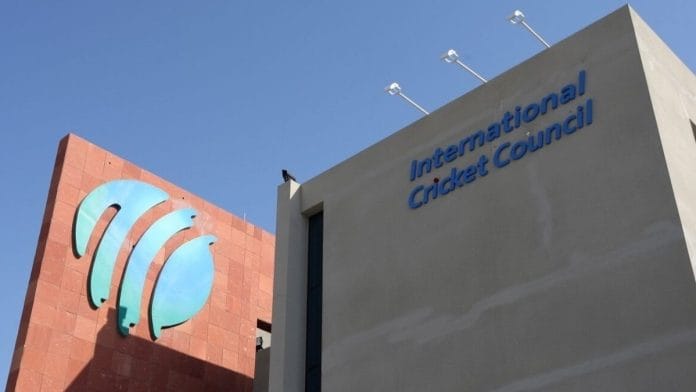New Delhi: The International Cricket Council (ICC) has rolled out several changes to its playing conditions for men’s international cricket including a stop clock in Test matches, penalty on a deliberate short run and making it no longer mandatory for the ball to be changed after a player is found applying saliva on it.
It has also rolled out an ‘injury replacement rule’ on a trial basis in domestic cricket.
While some of the new rules are already in effect in the new 2025-27 World Test Championship cycle, those with respect to white-ball cricket will be effective from 2 July.
Here, ThePrint looks at some of the major changes introduced by the council.
Use of stop clock
In order to combat the slow over rates, the ICC has rolled out the stop clock rule in Test cricket as well. According to the rule, the fielding team has to start the over within a minute of the previous one ending. Two warnings will be given by the umpire if the team fails to do so, following which a five-run penalty will be imposed on the bowling team.
Warnings will be reset after every 80 overs. This rule is already in motion in the 2025-27 WTC cycle.
The stop clock rule has been in effect in One-Day Internationals and T20Is since 1 June, 2024.
Saliva and ball change
Ban on use of saliva on the ball will remain in place. But, it is no longer mandatory for the umpires to change the ball as soon as saliva is found on it. This rule has been brought in to avoid situations where players deliberately apply saliva on the ball just to get it changed.
Going ahead, the decision of changing the ball—though largely left in the hands of umpires—will happen only when it appears too wet or there is more shine.
Default decision ‘out’ for secondary review
In the case of a secondary review following an on-field ‘out’ decision, the default ruling for any alternate mode of dismissal remains ‘out’.
For example, if a batsman given out caught reviews the decision, and the ultra edge graphic shows the ball missing the bat but brushing the pads, the batsman would be declared not out on catch. But, since the ball has touched the pads, ball-tracking would kick in for an LBW review. According to the new rule, the umpire’s call for this mode of dismissal would be ‘out’. So far, once it was determined the batter was not out caught, the default decision for the second mode of dismissal (lbw) would be not out.
Chronology in combined review
With respect to the Decision Review System (DRS), the TV umpire will check a combined review (asked by both umpire and player) in a chronological order.
For instance, if there is a run out appeal after an appeal for the leg-before-wicket out, the lbw decision (invoked by the fielding team) will be checked before the attempted run out (asked by the umpire).
Catch off a no-ball
In the case of on-field umpires checking whether a catch has been taken fairly, and the TV umpire declaring it a no-ball, the fairness of the catch will still be checked.
Previously, the no-ball would rule out the need to check the fairness of the catch. Now, if the catch is deemed fair, the batting team will only be awarded one run for the no-ball. But, if the catch isn’t clean, the batting team will be given the number of runs the batters take off that delivery.
Deliberate short run
The five-run penalty for stealing a short run remains in place. The updated rules give the fielding team the power to decide which batter it wants on strike under such circumstances.
New player replacement rule
To offset a team’s loss of a player who has suffered serious external injuries, ICC has asked all boards to trail their domestic first-class cricket fielding a full-time replacement player.
Notably, ICC mentioned that the injury has to be evident and visible to the match official only then they will allow a full-time replacement. Hamstring pulls and niggles won’t get counted. Also, the replacement player will have to be like-for-like, as is the case in concussion substitutes. This rule, the ICC mentioned, is only on a trial basis. Member countries can choose to implement or not in their domestic first-class circuit.
(Edited by Ajeet Tiwari)
Also Read: What prompted MCC to outlaw ‘bunny hop’ catches & what its new rule says






